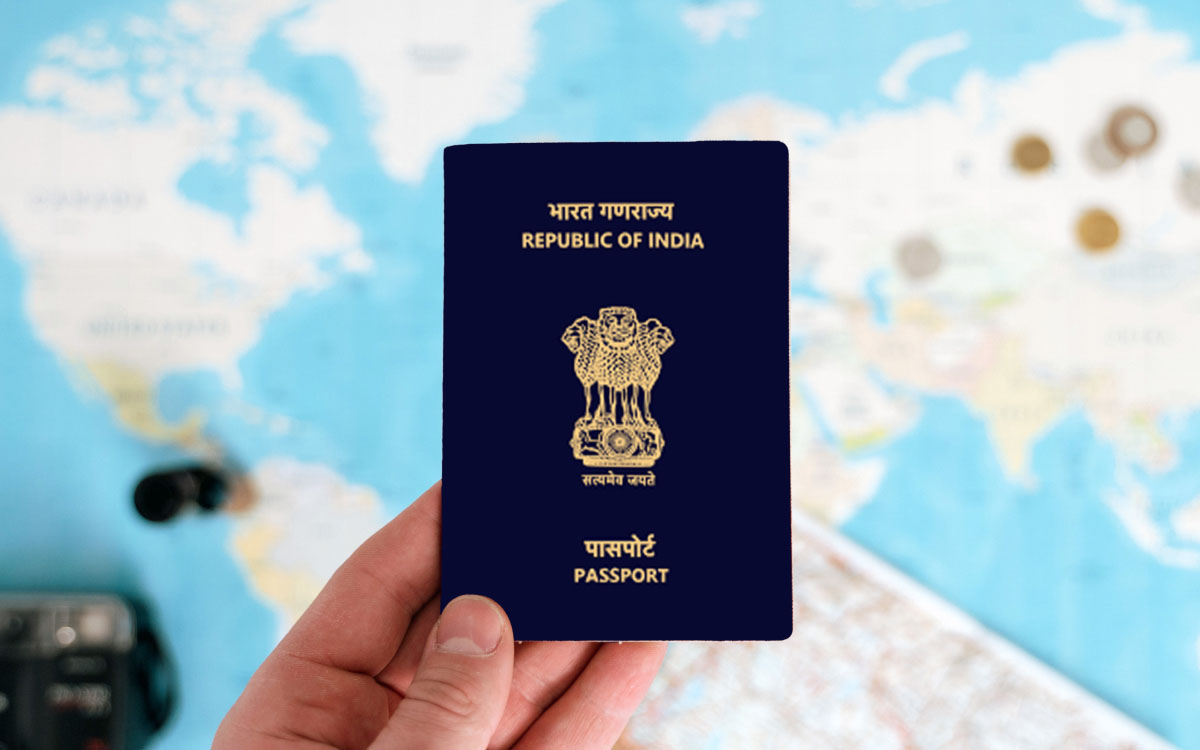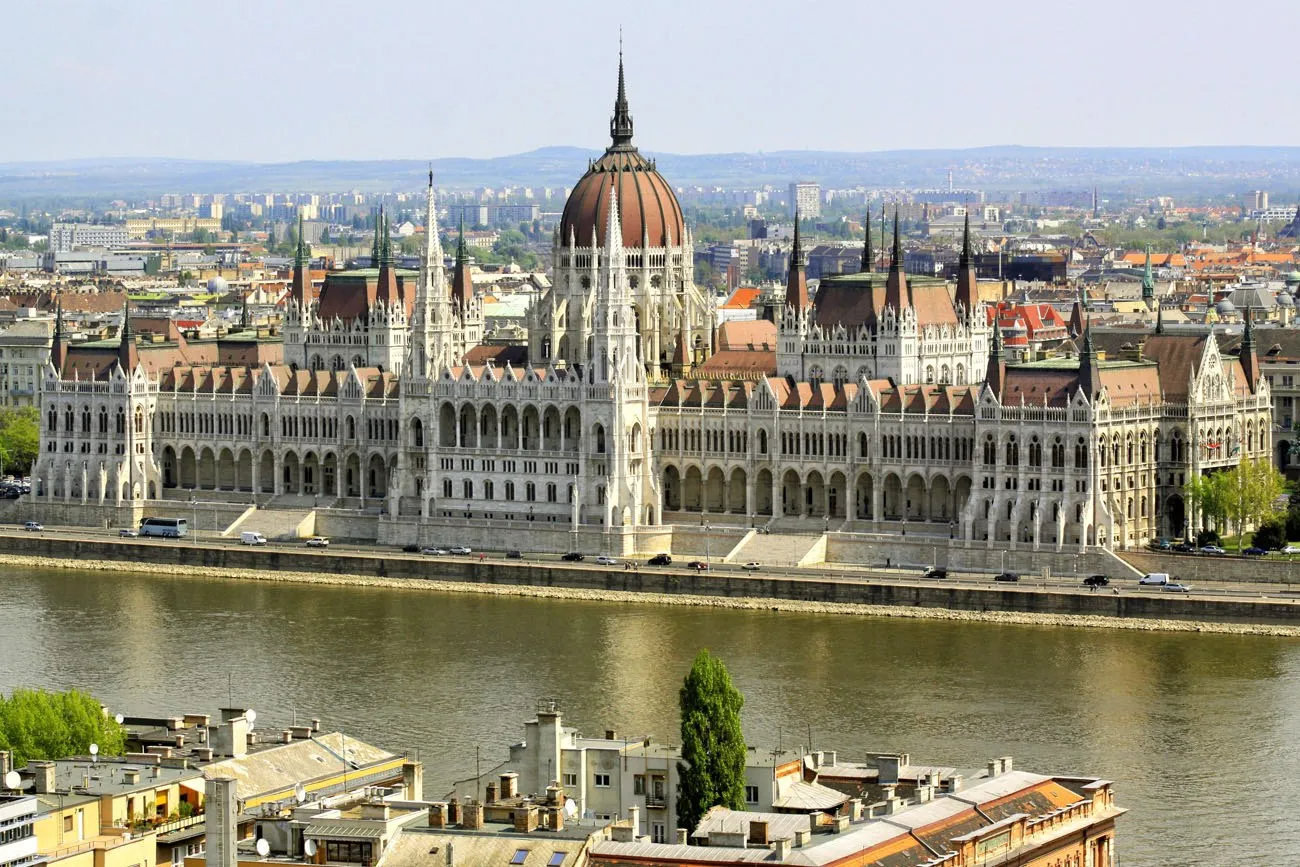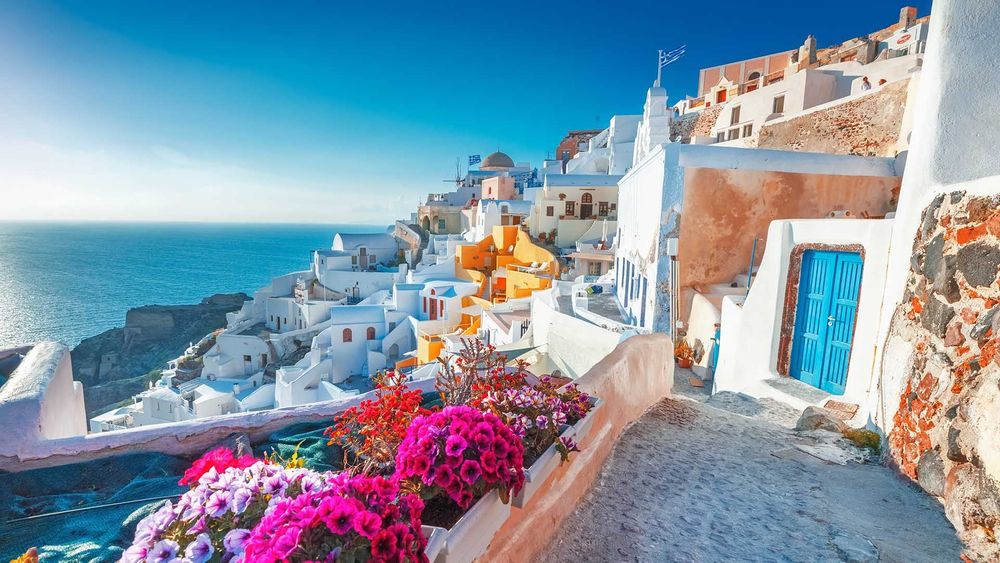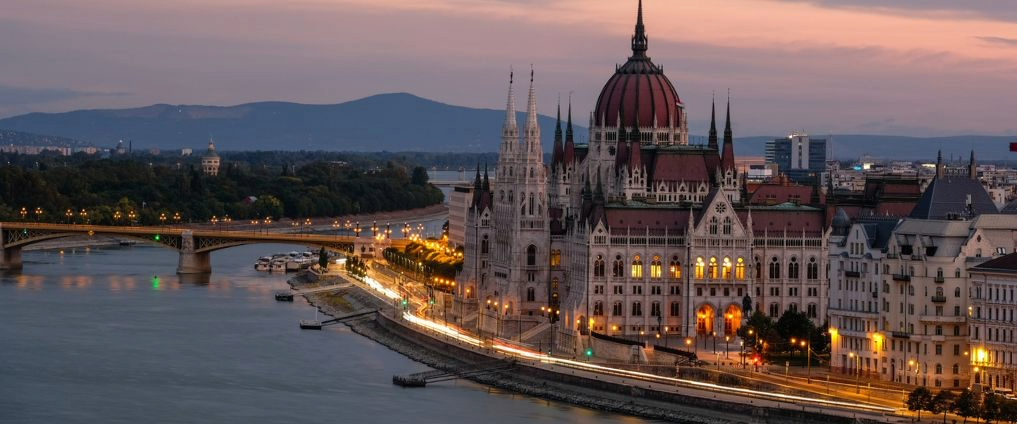What Are Golden Visas and Why Consider Them?
Golden Visa programs, also known as residency-by-investment or citizenship-by-investment schemes, have emerged as a transformative option for individuals seeking to secure residency or citizenship in a foreign country through financial contributions. These programs typically require investments in real estate, government bonds, business ventures, or donations to national development funds, offering a streamlined path to legal residency or even citizenship. In 2025, the appeal of Golden Visas is stronger than ever, driven by global uncertainties such as geopolitical tensions, economic instability, and climate-related challenges.
These programs provide benefits like visa-free travel, access to superior education and healthcare systems, tax advantages, and a secure Plan B for individuals and families looking to diversify their options. Affordable Golden Visa programs, starting as low as $105,000, make global mobility accessible to a broader audience, not just the ultra-wealthy. For example, countries like Nauru, Vanuatu, and Greece offer cost-effective pathways to residency or citizenship, enabling investors to enjoy enhanced lifestyles, international opportunities, and long-term security. This comprehensive guide delves into the cheapest Golden Visa programs available in 2025, their requirements, benefits, challenges, and future trends, providing a roadmap for those seeking affordable global residency.
Defining Golden Visas and Their Appeal
A Golden Visa is a government-sanctioned program that grants residency or citizenship in exchange for a qualifying financial investment, bypassing traditional immigration hurdles like lengthy residency periods or complex visa applications. Unlike standard visas, Golden Visas prioritize economic contributions, making them attractive for investors, entrepreneurs, retirees, and families seeking global mobility. The appeal lies in their flexibility and benefits: visa-free access to regions like the Schengen Area, eligibility for world-class education and healthcare, and potential tax exemptions or incentives.
For instance, a Greek Golden Visa offers residency in Europe for as little as €250,000, while Vanuatu’s citizenship program provides a passport with access to over 90 countries for $130,000. These programs cater to diverse needs, from business professionals seeking international expansion to families prioritizing quality education for their children. By investing in a Golden Visa, individuals gain the freedom to live, work, and travel with greater ease, making it a strategic choice in an interconnected world.
The Growing Popularity of Affordable Programs

The demand for affordable Golden Visa programs has skyrocketed in 2025, fueled by global economic shifts, political uncertainties, and the desire for enhanced mobility. Unlike high-cost programs, such as Malta’s citizenship scheme requiring €750,000, affordable options like Nauru ($105,000) and Dominica ($200,000) democratize access to global residency. These programs attract a wide range of investors, from middle-class professionals to retirees, who seek the benefits of international residency without exorbitant costs.
The rise of digital platforms has further simplified the application process, with countries like Vanuatu offering online submissions that reduce processing times to as little as 1–2 months. Additionally, the global push for sustainability, aligned with the United Nations’ Sustainable Development Goals (SDGs), has led some countries to structure investments to support green initiatives, enhancing their appeal. The growing popularity of these programs reflects a broader trend toward global citizenship, where individuals seek to secure their future in stable, opportunity-rich environments.
Historical Context of Golden Visa Programs
The concept of Golden Visas traces its origins to the 1980s, when countries like St. Kitts and Nevis introduced citizenship-by-investment programs to attract foreign capital. The 2008 global financial crisis spurred further growth, with European nations like Portugal (2012) and Greece (2013) launching residency programs to boost their economies through foreign investment. These programs were designed to stimulate real estate markets, create jobs, and fund public projects, while offering investors residency perks.
Over time, the model expanded globally, with Caribbean nations like Dominica and Pacific islands like Vanuatu entering the market with low-cost options. The evolution of Golden Visas reflects a shift in global migration patterns, where economic contributions became a viable alternative to traditional immigration pathways. In 2025, over 100 countries offer some form of investment-based residency or citizenship, with programs increasingly aligning with sustainable development goals to address global challenges like poverty and climate change. This historical context underscores the enduring appeal of Golden Visas as a mutually beneficial arrangement for investors and host countries.
Core Benefits of Affordable Golden Visas
Affordable Golden Visa programs offer a compelling array of benefits that make them a strategic investment for individuals seeking to expand their global footprint. These advantages go beyond mere residency, encompassing enhanced mobility, access to world-class services, and long-term financial and lifestyle improvements. By choosing cost-effective programs, investors can achieve significant returns on relatively modest investments, making these options accessible to a wider audience.
Enhanced Global Mobility
One of the most sought-after benefits of Golden Visas is the ability to travel freely across borders without the burden of visa applications.
For example, a Greek Golden Visa grants visa-free access to the 26 Schengen Area countries, facilitating business and leisure travel across Europe. Similarly, Caribbean passports from Dominica or St. Lucia provide visa-free or visa-on-arrival access to over 140 countries, including the UK and Singapore. This mobility is invaluable for entrepreneurs expanding their businesses, digital nomads working remotely, or families exploring international opportunities. Even lower-cost programs, like Nauru’s $105,000 residency scheme, offer access to stable jurisdictions, enhancing travel flexibility. In a world where mobility is a key asset, Golden Visas provide a competitive edge for investors seeking to navigate global markets with ease.
Access to Education and Healthcare
Golden Visa programs open doors to high-quality education and healthcare systems, which are critical for families relocating abroad. European countries like Portugal and Greece boast internationally recognized schools and universities, as well as advanced healthcare facilities that rival global standards. For instance, a family with a Portuguese Golden Visa can enroll their children in top-tier schools while benefiting from the country’s public healthcare system.
In the Caribbean, countries like Dominica offer access to regional educational institutions and medical facilities, with the added advantage of proximity to North America. These benefits ensure that investors and their families enjoy a higher quality of life, with access to resources that enhance personal and professional development. For retirees, programs like Greece’s provide affordable living in a Mediterranean climate with robust healthcare support.
Financial and Lifestyle Advantages
Affordable Golden Visas deliver financial benefits, such as potential tax exemptions and investment returns, alongside lifestyle improvements. For example, real estate investments in Greece or Portugal can yield rental income or capital appreciation, while countries like Vanuatu offer tax-friendly environments with no income or capital gains tax. Lifestyle advantages include living in culturally rich destinations like Athens or serene Pacific islands like Nauru.
These programs cater to diverse preferences, from vibrant urban centers to tranquil retirement havens. Additionally, Golden Visas provide a sense of security, serving as a Plan B in times of political or economic instability. For instance, a $130,000 investment in Vanuatu grants lifelong citizenship, offering a safe haven and flexibility for future planning. These combined benefits make affordable Golden Visas a strategic choice for investors seeking both financial and personal rewards.
Top Cheapest Golden Visa Programs in 2025
In 2025, several countries stand out for offering the most affordable Golden Visa programs, balancing low investment thresholds with significant benefits. These programs, ranging from $105,000 to €280,000, provide cost-effective pathways to residency or citizenship, making them accessible to a broad range of investors. Below, we explore the top five cheapest options, detailing their requirements, benefits, and unique features.
Nauru: The Most Affordable Golden Visa
Nauru, a small Pacific island nation, offers the cheapest Golden Visa program in 2025, with a minimum investment of $105,000, typically through a non-refundable donation to a government development fund. This program grants permanent residency without requiring physical presence, making it ideal for investors seeking flexibility and minimal commitment.
The application process is straightforward, taking 3–4 months, and includes family members such as spouses, children under 25, and parents over 65. While Nauru’s passport offers limited visa-free travel (approximately 80 countries), its low cost and tax-friendly environment make it attractive for those prioritizing affordability and a secure base in the Pacific. The program’s simplicity and lack of residency requirements appeal to investors looking for a quick, low-cost entry into global residency.
Vanuatu: Fast-Track Citizenship
Vanuatu’s citizenship-by-investment program is one of the most affordable and efficient, requiring a minimum $130,000 donation to the government’s development fund for a single applicant. This program grants full citizenship and a passport with visa-free access to over 90 countries, including the UK, Schengen Area, and Singapore. The application process is remarkably fast, often completed in 1–2 months, with no requirement to reside in Vanuatu.
Investors can include spouses, children under 30, and parents over 65, making it a family-friendly option. Additional fees, such as $5,500 for due diligence, apply, but the program’s speed and affordability make it a top choice for those seeking immediate citizenship and global mobility. Vanuatu’s tax-free status and tropical environment further enhance its appeal for investors and retirees.
Dominica: Caribbean Citizenship for Less
Dominica’s citizenship-by-investment program remains a popular choice, with a minimum investment of $200,000 for a government donation or $250,000 for real estate, which can be resold after 3–5 years. The program offers a powerful passport with visa-free access to over 140 countries, including the EU, UK, and Canada. Processing takes 3–4 months, and there is no residency requirement, making it highly flexible. Family inclusion extends to spouses, children under 30, and parents over 65, with additional fees of approximately $1,000–$2,000 per dependent for due diligence. Dominica’s program is renowned for its affordability, transparency, and strong global mobility, making it ideal for investors seeking a cost-effective Caribbean citizenship with significant travel benefits.
Greece: Europe’s Cheapest Residency Option
Greece offers Europe’s most affordable Golden Visa, requiring a minimum €250,000 real estate investment in designated regions (though costs rise to €500,000 in high-demand areas like Athens). The program grants residency within 2–3 months, with no minimum stay requirement, and provides visa-free access to the Schengen Area.
Investors can apply for citizenship after seven years of residency, and family members, including spouses, children under 21, and parents, are eligible for inclusion. Greece’s vibrant culture, Mediterranean climate, and stable EU economy make it a top choice for investors seeking affordable European residency. Real estate investments can also generate rental income, offering financial returns alongside residency benefits. The program’s low cost and flexibility make it a standout option for families and retirees.
Portugal: Flexible and Affordable EU Residency
Portugal’s Golden Visa program is highly competitive, with investment options starting at €250,000 for cultural heritage projects or €280,000 for real estate in low-density areas. The program grants residency with a minimal stay requirement of 7 days per year, and investors can apply for citizenship after five years. Benefits include visa-free Schengen Area travel, access to Portugal’s excellent education and healthcare systems, and potential tax benefits under the Non-Habitual Resident (NHR) regime. Family inclusion covers spouses, children under 26, and parents, with processing times of 6–8 months. Portugal’s combination of affordability, cultural richness, and EU membership makes it a premier choice for investors seeking a foothold in Europe with long-term financial and lifestyle advantages.
Requirements and Eligibility for Golden Visas
Golden Visa programs have specific requirements to ensure applicants meet financial, legal, and procedural standards. While these vary by country, they share common elements designed to balance accessibility with security, ensuring investors contribute meaningfully to the host country’s economy.
Minimum Investment Thresholds
Investment requirements for affordable Golden Visas range from $105,000 in Nauru to €280,000 in Portugal. Options include non-refundable donations (e.g., Vanuatu’s $130,000 contribution), real estate purchases (e.g., Greece’s €250,000), government bonds, or business investments. Most programs require investors to maintain their investment for a set period, typically 3–5 years, to retain residency or citizenship status. For example, Dominica’s real estate option mandates holding the property for at least three years, while Portugal requires a five-year commitment for real estate or cultural investments. Investors must carefully evaluate these thresholds to ensure alignment with their financial goals.
Documentation and Due Diligence
Applicants must provide extensive documentation, including proof of funds (e.g., bank statements), a clean criminal record, and valid medical insurance. Due diligence checks are mandatory to verify financial and legal integrity, with fees ranging from $1,000 (Dominica) to $7,500 (Malta). For instance, Vanuatu requires a $5,500 due diligence fee per applicant, ensuring transparency. Additional documents, such as passports, birth certificates, and marriage licenses, are needed for family members. Processing times vary, from 1–2 months for Vanuatu to up to 12 months for Portugal, depending on the program’s complexity and scrutiny. Working with licensed agents, such as those recommended by Henley & Partners, can streamline this process.
Family Inclusion and Residency Obligations
Most Golden Visa programs allow investors to include family members, typically spouses, children under 30, and parents over 65, though age limits vary (e.g., Greece limits children to under 21). Residency obligations differ significantly: Nauru and Vanuatu have no minimum stay requirements, while Portugal requires 7 days annually. Some programs, like Dominica, grant lifelong citizenship with no residency obligation, while Greece offers renewable residency with a path to citizenship after seven years. Investors must comply with these obligations to maintain status, and failure to do so (e.g., selling a property early in Greece) can result in revocation. Family inclusion often incurs additional fees, such as $25,000 per dependent in Vanuatu.
Challenges of Golden Visa Programs
While Golden Visas offer significant advantages, they come with challenges that require careful consideration. From regulatory hurdles to financial risks, investors must navigate these obstacles to ensure a successful outcome.
Navigating Program Restrictions
Golden Visa programs face increasing scrutiny, with some countries tightening regulations or phasing out schemes. For example, Spain announced plans to end its Golden Visa program by April 2025, citing housing market concerns, while Cyprus terminated its citizenship program in 2020 due to abuse. Investors must stay informed about policy changes, as programs can close abruptly or increase investment thresholds. For instance, Greece raised its minimum investment to €500,000 in high-demand areas like Athens in 2023. Consulting legal experts or firms like Global Citizen Solutions can help investors navigate these restrictions and choose stable programs.
Financial Risks and Investment Returns
Investments in Golden Visa programs, particularly real estate, carry risks such as market fluctuations or currency devaluation. For example, a property purchased in Greece for €250,000 may not yield expected returns if the real estate market stagnates. Non-refundable donations, like those in Vanuatu ($130,000) or Dominica ($200,000), offer no financial return, requiring investors to weigh the cost against benefits like citizenship. Additional costs, such as legal fees ($10,000–$20,000) and due diligence fees, can also add up. Investors must conduct thorough financial planning and consult advisors to mitigate risks and ensure alignment with their long-term goals.
Cultural and Integration Barriers
Relocating to a new country through a Golden Visa can present cultural and integration challenges. For instance, moving to Portugal or Greece may require learning basic Portuguese or Greek to navigate daily life, especially for those pursuing citizenship. Cultural differences, such as unfamiliar social norms or bureaucratic systems, can also pose difficulties. Engaging in local communities, attending cultural events, or enrolling in language courses can ease this transition. For investors not planning to relocate, such as those in Vanuatu’s program, these challenges are minimal, but understanding the host country’s culture remains important for maximizing the program’s benefits.
Benefits of Choosing Affordable Golden Visas
Affordable Golden Visas provide a unique combination of accessibility, flexibility, and long-term value, making them an attractive option for investors seeking global opportunities on a budget. These programs deliver personal, financial, and strategic advantages that enhance quality of life and security.
Cost-Effective Global Access
Programs like Nauru ($105,000) and Vanuatu ($130,000) offer residency or citizenship at significantly lower costs than high-end options like Malta (€750,000) or Cyprus (€2 million, pre-2020). Despite their affordability, these programs provide substantial benefits, such as visa-free travel to dozens of countries or residency in stable jurisdictions like the EU. For example, Greece’s €250,000 program grants access to the Schengen Area, while Dominica’s passport opens doors to 140+ countries. This cost-effective access makes Golden Visas a practical choice for investors seeking global mobility without breaking the bank.
Family-Friendly Opportunities
Affordable Golden Visas are designed with families in mind, allowing inclusion of spouses, children, and parents in most programs. For instance, Dominica’s program covers children under 30 and parents over 65, enabling families to relocate together and access education, healthcare, and job opportunities. In Greece, families benefit from world-class schools and medical facilities, enhancing their quality of life. These programs ensure that the benefits of residency or citizenship extend to loved ones, providing long-term security and opportunities for future generations.
Long-Term Security and Flexibility
In an era of global uncertainty, affordable Golden Visas offer a secure Plan B, allowing investors to relocate or travel freely during crises. For example, Vanuatu’s citizenship provides a lifelong passport, while Greece’s residency offers a stable EU base. These programs provide flexibility, as many have minimal or no residency requirements, allowing investors to maintain their current lifestyle while enjoying new opportunities. This combination of security and flexibility makes affordable Golden Visas a strategic investment for navigating an unpredictable world.
How to Apply for a Golden Visa in 2025
Applying for a Golden Visa requires careful preparation, from selecting the right program to meeting legal and financial requirements. By following a structured approach, investors can navigate the process efficiently and secure their desired residency or citizenship.
Researching the Right Program
Choosing the right Golden Visa program involves comparing investment options, costs, and benefits. For example, Greece’s €250,000 real estate program suits those seeking EU residency, while Vanuatu’s $130,000 donation is ideal for fast citizenship. Investors should consider factors like visa-free travel, family inclusion, and residency obligations. Resources like Henley & Partners or Global Citizen Solutions provide detailed comparisons and expert guidance to help investors make informed decisions based on their goals and budget.
Preparing Your Application
A successful Golden Visa application requires meticulous documentation, including proof of funds (e.g., bank statements showing sufficient capital), a clean criminal record, and valid medical insurance. Additional documents, such as passports, marriage certificates, and birth certificates, are needed for family members. Due diligence checks ensure applicant integrity, with fees ranging from $1,000 (Dominica) to $5,500 (Vanuatu). Working with a licensed agent or immigration lawyer can streamline the process, ensuring compliance with local regulations and minimizing delays. For example, Portugal’s AIMA requires thorough documentation, and errors can extend processing times beyond 6–8 months.
Submitting and Maintaining Status
Applications must be submitted through government-approved channels, such as Vanuatu’s Citizenship Office or Greece’s Ministry of Migration. After approval, investors must maintain their investment for the required period (e.g., 5 years for Portugal’s real estate) and comply with residency obligations, if any. For example, Portugal requires 7 days of annual residence, while Nauru and Dominica have no stay requirements. Regular renewals, such as Greece’s 5-year residency permit, may be necessary to maintain status. Investors should stay informed about program updates to avoid revocation, such as selling a property early in Greece.
The Future of Golden Visa Programs
The Golden Visa landscape is evolving rapidly, influenced by global regulations, technological advancements, and a growing emphasis on sustainability. Understanding these trends can help investors make strategic decisions and act before opportunities change.
Emerging Trends in 2025
In 2025, Golden Visa programs are becoming more flexible and diverse, with countries like Portugal offering cultural investment options and Greece exploring startup funding as an alternative to real estate. Digitalization is streamlining applications, with countries like Vanuatu and Vietnam offering online submission platforms that reduce processing times. However, some nations, like Spain, are phasing out programs due to local housing concerns, while others, like Nauru, are gaining traction for their affordability. The integration of sustainable investments, aligned with the SDGs, is also a growing trend, encouraging contributions to green projects or community development.
Impact of Global Regulations
The European Union and other global bodies are increasing scrutiny of Golden Visa programs, citing concerns about money laundering and housing affordability. For example, Malta faced EU pressure to reform its €750,000 citizenship program, while Spain’s program closure reflects local policy shifts. These regulations may lead to higher investment thresholds, stricter due diligence, or program suspensions, as seen in Cyprus (2020) and Montenegro (2022). Investors must act swiftly to secure benefits before changes occur, consulting experts to navigate evolving requirements and ensure compliance with international standards.
Predictions for 2030
By 2030, Golden Visa programs are expected to prioritize sustainability, with investments increasingly tied to environmental or social impact projects, such as renewable energy or education initiatives. Digital platforms will make applications more accessible, potentially lowering administrative costs. However, rising global scrutiny may increase investment thresholds, making programs like Nauru ($105,000) or Vanuatu ($130,000) less common. New players, such as Vietnam or other Pacific nations, may emerge with competitive programs, while established options like Greece and Portugal could raise costs to align with EU standards. Investors should seize current opportunities to benefit from affordable programs before these shifts reshape the landscape.










